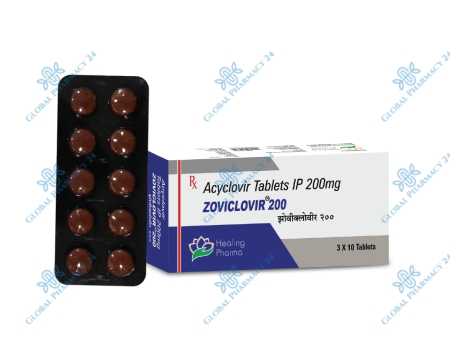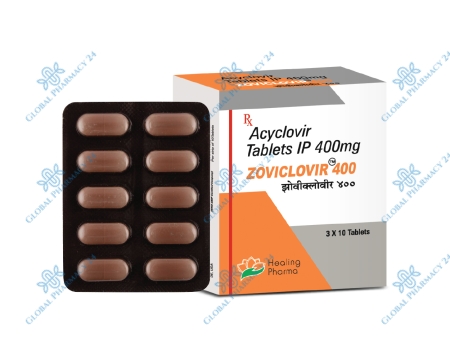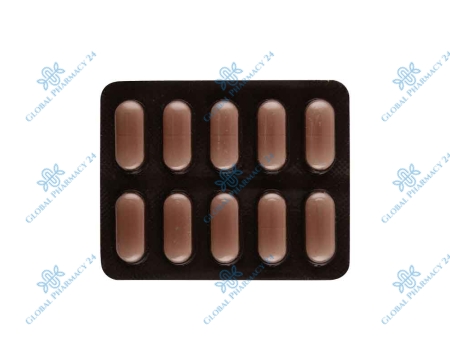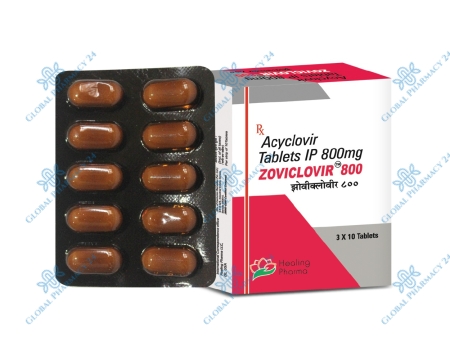| Characteristic | Detail |
|---|---|
| Active Ingredient | Acyclovir |
| Dosage Forms | Cream, Oral Tablets, Intravenous Injection |
| Used For | Herpes Simplex Virus, Varicella-Zoster Virus |
| Effectiveness | Reduces duration and severity of outbreaks |
| Side Effects | Nausea, Headache, Dizziness, Vomiting |
Unpacking Acyclovir: A Complete Product Analysis
Acyclovir stands as a cornerstone in antiviral treatment, particularly against the herpes simplex virus (HSV) and the varicella-zoster virus (VZV), responsible for chickenpox and shingles, respectively. Its discovery revolutionized the management of viral infections, offering a potent tool to mitigate the spread and severity of these pervasive viruses. By targeting the viral DNA polymerase, Acyclovir inhibits viral replication, providing a mechanism of action that is both specific and highly effective.
Despite its specificity, the clinical application of Acyclovir spans various formulations, including oral tablets, topical creams, and intravenous solutions, catering to the diverse needs and conditions of patients. This flexibility ensures that treatment can be tailored to the severity and location of the infection, maximizing therapeutic efficacy while minimizing adverse effects.
Composition and Properties of Acyclovir
Acyclovir's chemical makeup is specifically designed to target virus-infected cells, sparing healthy cells from unnecessary exposure. This selective activity is due to its structure, which closely mimics that of deoxyguanosine, a nucleoside building block of DNA. Once incorporated into viral DNA during replication, Acyclovir effectively halts the proliferation of the virus, showcasing its precise mechanism of action.
Unveiling the Active Ingredient
The active ingredient, Acyclovir, is a synthetic nucleoside analogue, which, upon phosphorylation, becomes an active form capable of integrating into viral DNA, thereby stopping the virus in its tracks. This targeted approach underscores the drug's effectiveness in treating herpes-related conditions.
Key Chemical Insights
Acyclovir's efficacy is rooted in its ability to mimic natural nucleosides, allowing it to be selectively activated in virus-infected cells. This specificity reduces the risk of toxicity to healthy cells, making Acyclovir a preferred choice for long-term management of viral infections.
Acyclovir's Efficacy and Dosage
The efficacy of Acyclovir is highly dependent on the timing of administration. Early treatment following the onset of symptoms significantly enhances its effectiveness, particularly in acute outbreaks of herpes viruses. Dosage varies by the type of infection, with higher doses often required for the initial treatment of genital herpes and shingles, and lower, suppressive doses for long-term management of HSV infections.
Uses and Effectiveness
Acyclovir is widely recognized for its role in reducing the duration and severity of herpes simplex virus outbreaks. Its effectiveness extends to the treatment of shingles and chickenpox, offering relief from pain and accelerating the healing process.
Dosage Guide
Dosing recommendations for Acyclovir vary, with oral dosages ranging from 200 mg to 800 mg up to five times a day, depending on the condition being treated. For severe infections, intravenous Acyclovir may be administered, underscoring the need for professional guidance in determining the optimal treatment regimen.
Safety Precautions with Acyclovir
While Acyclovir is generally well-tolerated, it is crucial to consider potential kidney issues, particularly with intravenous forms or higher doses. Adequate hydration is essential during treatment to mitigate this risk. Moreover, patients with pre-existing kidney conditions or those taking nephrotoxic drugs should use Acyclovir with caution, highlighting the importance of medical oversight.
Contraindications and Side Effects
Common side effects include nausea, headache, and dizziness, though serious reactions are rare. Acyclovir should be used cautiously in individuals with kidney impairment or those allergic to its components, to prevent adverse outcomes.
Cautions in Combining Acyclovir with Other Drugs
When combined with certain medications, such as nephrotoxic agents, the risk of kidney damage increases. It's imperative to consult healthcare providers about all current medications to safely incorporate Acyclovir into the treatment plan.
Evidence-Based Insights: Major Research on Acyclovir
Decades of clinical research have solidified Acyclovir's standing in antiviral therapy. Studies consistently demonstrate its ability to reduce the frequency and severity of outbreaks, offering substantial benefits to individuals suffering from chronic viral infections. Furthermore, research into Acyclovir's mechanism has paved the way for the development of new antiviral agents, expanding the arsenal against viral diseases.
Recent investigations continue to explore the potential of Acyclovir in treating novel viral infections and its effectiveness in combination therapies. These ongoing studies not only affirm the drug's established role but also hint at its versatility in addressing emerging viral challenges.
Core Literature on Acyclovir
Key studies highlight Acyclovir's impact in reducing the transmission of HSV-2 and its role in managing severe HSV and VZV infections. This body of research underpins the drug's critical role in antiviral treatment protocols, showcasing its broad therapeutic utility.
Acyclovir Packaging and Handling
Proper packaging and handling of Acyclovir are essential to maintain its stability and effectiveness. Manufacturers adhere to stringent standards to ensure that the medication reaches patients without degradation. The packaging is designed to protect Acyclovir from light and moisture, two factors that can significantly reduce its potency. This attention to detail extends to the medication's storage recommendations, which typically advise keeping it in a cool, dry place, away from direct sunlight.
Handling Acyclovir, especially in its intravenous form, requires careful attention to prevent contamination and ensure patient safety. Healthcare professionals are trained in proper techniques for preparing and administering intravenous doses, including the use of sterile equipment and adherence to infection control protocols. This level of care ensures that Acyclovir's therapeutic benefits are fully realized, with minimal risk of adverse effects from improper handling.
Understanding Acyclovir Packaging
The packaging of Acyclovir is designed not only for protection but also for patient convenience. Oral tablets are typically blister-packed to preserve their integrity and facilitate dosage tracking. Topical creams come in tubes that allow for precise application, minimizing waste and contamination. This thoughtful approach to packaging underscores the commitment to patient care and medication efficacy.
Safe Handling Practices
Safe handling practices for Acyclovir include ensuring the integrity of the medication's packaging before use, proper storage according to the manufacturer's guidelines, and adherence to prescribed dosages. These practices help prevent medication errors and enhance the treatment's effectiveness.
Comparative Analysis: Acyclovir vs. Other Antiviral Drugs
When compared to other antiviral medications, Acyclovir's targeted mechanism of action offers significant advantages, particularly in the treatment of HSV and VZV infections. Its ability to selectively target virus-infected cells minimizes the impact on healthy cells, reducing the likelihood of adverse effects. Furthermore, Acyclovir's long history of use has established a strong safety profile, making it a preferred option for many healthcare providers.
However, it is important to consider that no medication is without limitations. Resistance to Acyclovir can develop, particularly in immunocompromised patients, necessitating alternative treatments. Moreover, the need for frequent dosing in some formulations can impact patient compliance. These factors highlight the importance of personalized treatment plans and ongoing research into antiviral therapies.
| Feature | Acyclovir | Other Antiviral Drugs |
|---|---|---|
| Target Viruses | HSV, VZV | Varies by medication |
| Mechanism of Action | Inhibits viral DNA polymerase | Varies by medication |
| Side Effects | Nausea, Headache, Dizziness | Can vary significantly |
| Dosing Frequency | Up to five times daily for oral form | Varies by medication |
| Resistance Development | Possible, especially in immunocompromised individuals | Varies by medication |
In conclusion, Acyclovir remains a cornerstone in the treatment of herpes simplex and varicella-zoster virus infections. Its targeted action, established safety profile, and versatile formulations make it an invaluable tool in the antiviral arsenal. However, the evolution of viral resistance and the advent of new antiviral agents underscore the need for ongoing research and development in this field. By understanding the nuances of Acyclovir's application and handling, healthcare providers can optimize its benefits, ensuring that patients receive the most effective and safe treatment available.
FAQs Acyclovir
What is Acyclovir?
Acyclovir is an antiviral medication used to treat infections caused by certain types of viruses. It is commonly prescribed to treat herpes simplex virus infections, including genital herpes, cold sores, and shingles (herpes zoster).
How does Acyclovir work?
Acyclovir works by inhibiting the replication of the herpes simplex virus. It interferes with the viral DNA synthesis, thereby preventing the virus from multiplying and spreading in the body.
What conditions does Acyclovir treat?
Acyclovir is primarily used to treat infections caused by herpes viruses, including genital herpes, cold sores, and shingles. It may also be prescribed for other viral infections, as determined by a healthcare provider.
How is Acyclovir taken?
Acyclovir is typically taken orally, in the form of tablets or capsules. The dosage and duration of treatment depend on the specific condition being treated and the individual's medical history. It's important to follow the prescribed dosage and schedule provided by a healthcare professional.
What are the common side effects of Acyclovir?
Common side effects of Acyclovir may include nausea, vomiting, diarrhea, headache, and dizziness. These side effects are usually mild and temporary. However, if any side effects persist or worsen, it's important to consult a healthcare provider.
Can Acyclovir cure herpes?
While Acyclovir can help manage and reduce the symptoms of herpes infections, it does not cure the underlying viral infection. Herpes is a lifelong condition, and Acyclovir can help control outbreaks and reduce their frequency and severity, but it does not eliminate the virus from the body.























